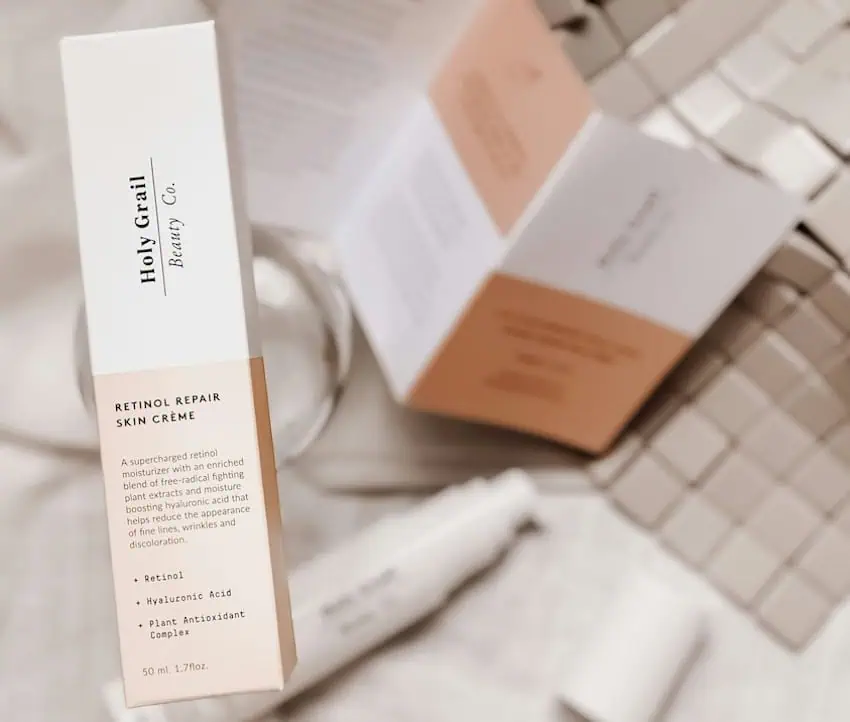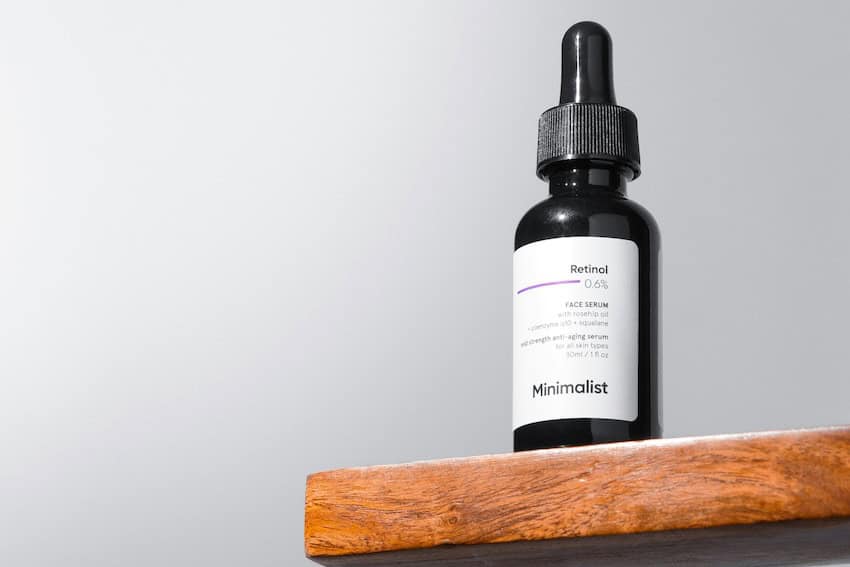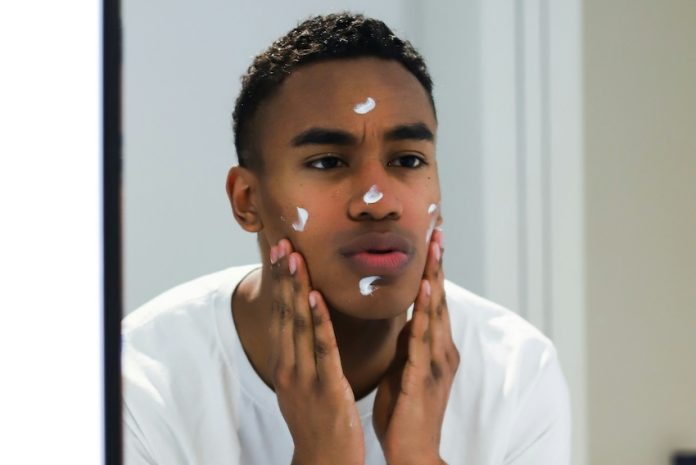Retinol, a compound considered the “holy grail” of beauty products, has become a staple in many skin-care routines. Due to its scientifically proven properties as an anti-aging agent, it’s lauded by beauty bloggers and skin care experts alike. Since its discovery in 1971, retinol has become the most-used topically applied cosmetic active ingredient in the skincare industry, and is the first vitamin approved by the US Food and Drug Administration as an anti-wrinkle agent. However, A European Union ban on the use of retinol above specific concentrations has sparked concern among consumers.
While the restrictions have not affected skincare products sold in Mexico, many users here wonder if continuing to use the current concentrations puts their health at risk. To answer your questions, we asked dermatologist Dr. Daniela Lara Del Valle, founder of Clínica de la Piel Dermantra in San Miguel de Allende, if consumers in Mexico should be worried about the recent retinol restrictions.

What is retinol?
Retinol is a Vitamin A derivative that stimulates collagen production and elasticity in the deepest layers of the skin. “It is a powerful antioxidant,” Dr. Lara explains, as “it eliminates free radicals and protects DNA from its mutagenic action, meaning that it contributes to slowing down cellular aging.” Moreover, retinol reduces the appearance of fine lines and wrinkles, lightens blemishes and gives the skin a fresher, plump appearance.
But retinol’s benefits come with risks. With an absorption capacity by the skin ranging from 5% to 10%, excessive use of retinol can cause irritation, dryness, redness and peeling.
What do the EU’s new retinol restrictions say?
The new EU restrictions mandate a maximum retinol concentration of .05% in body lotions and .3% in face and hand products. The previously allowed concentration could go up to 1%.
The reasoning behind this decision concerns the amount of Vitamin A to which people are already exposed.

“The European organizations that regulate the use of cosmetics consider that in certain countries, the population already exceeds the accepted standards of Vitamin A, whether through topical treatments, diet or supplements,” Dr. Lara said.
Moreover, the regulations say that product labels should include a warning to inform consumers already exposed to vitamin A of the possibility of overexposure from the use of such agents. However, prescription-strength vitamin A products will remain available through doctors and dermatologists.
The latest restrictions will be rolled out over 36 months beginning at the end of 2024.
Should I be worried if I buy products with more than .5% retinol?
Dr. Lara says the new EU restrictions do not mean that people who have been using the old concentration of retinol and wish to continue doing so are in any danger. However, using these products could be counterproductive for certain skin types, especially fair skin tones.
“The skin does not require high concentrations of retinol for rejuvenation, as it has an angiogenic effect, meaning that it forms vessels,” she explained. “For instance, continued use of high retinol levels by individuals with fair skin and visible veins may be ineffective.”
Whether or not to continue using the old retinol concentrations comes down to a personal decision. However, Dr. Lara recommends using alternative products to avoid risks.
“Remember that the new restrictions are for the benefit of the skin. Ideally, we should buy products with the new concentrations or other retinoid derivatives.”
Despite these restrictions, a retinol ban does not appear to be on the cards in Mexico.
What alternatives to retinol can I use?

Less concentration of retinol in European cosmetic products shouldn’t concern consumers, Dr. Lara says. “The good news is that we have other alternatives such as retinaldehyde or retinoate. Moreover, we also have bakuchiol, the plant-based alternative to retinol.”
Bakuchiol is a chemical compound extracted from the seeds of the babchi plant. Like retinoids, bakuchiol appears to stimulate collagen producing receptors in the skin with fewer risks or side effects. It’s used in serums and creams, many of which combine bakuchiol with other botanicals, like seaweed and rosehip.
But Dr. Lara’s preference is retinaldehyde, which unlike retinol, doesn’t require a tolerance period by the skin.
Retinaldehyde is the strongest over-the-counter retinoid. Its formula is more complex than that of retinol, making it more expensive. Its use may cause similar side effects to pure retinol, but they are usually gentler.
“I really like retinaldehyde or ‘retinal,’ as I tell my patients,” Dr. Lara said. “It is a direct precursor of retinoic acid, meaning that its effects are faster than those of classic retinol. Besides, it has fewer side effects and, surprisingly, is tolerated very well in most patients,” she added.
If you need help deciding which type of Vitamin A should you use, Dr. Lara suggests seeing a dermatologist to help you choose the right product for your skin type and needs.
Disclaimer: This article is for informational purposes only and should not be considered legal or medical advice. The writer and Mexico News Daily assumes no responsibility or liability for any errors or omissions in the content on this site. Individuals should always consult with qualified professionals regarding medical procedures, including plastic and/or cosmetic surgery, and medical aesthetic treatments, as well as consider their jurisdiction’s applicable laws and regulations.
Gabriela Solis is a Mexican lawyer turned full-time writer. She was born and raised in Guadalajara and covers business, culture, lifestyle and travel for Mexico News Daily. You can follow her lifestyle blog Dunas y Palmeras.
